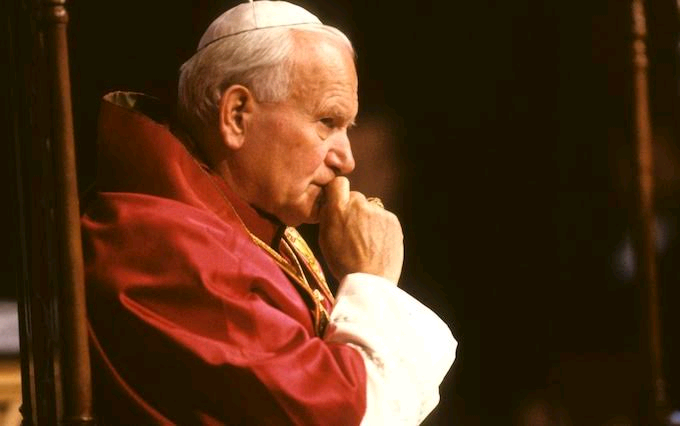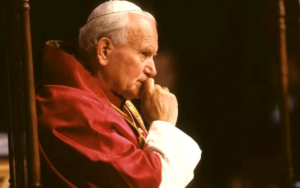
Sacred Mysteries: Air miles alone don’t make anyone a saint….

In a world increasingly defined by its pace and connectivity, the concept of sanctity has evolved into a paradox. With globalization and modern travel, the metaphorical “air miles” have become a symbol of experience, but they do not equate to moral or spiritual elevation. The journey toward sanctity, much like a pilgrimage, requires more than just physical distance covered; it demands introspection, moral integrity, and a genuine commitment to the well-being of others.
### The Nature of Sanctity
Sanctity is often reserved for individuals who embody virtues such as compassion, humility, and selflessness. Historically, saints have emerged from lives dedicated to service, often amid suffering and sacrifice. They inspire others not merely through their deeds but through the authenticity of their character. The notion that one can accrue “air miles”—be it through travel, social connections, or worldly accomplishments—can mislead us into thinking that such experiences inherently contribute to a person’s moral stature.
### The Illusion of Experience
The modern traveler might boast about extensive journeys and encounters across the globe, yet these experiences do not guarantee depth of understanding or compassion. Travel can sometimes serve as a veneer, allowing individuals to escape their realities without confronting their ethical responsibilities. The privilege of movement can foster superficial connections and transient experiences rather than a grounded understanding of the cultures and communities one interacts with.
### The Misinterpretation of Global Citizenship
In an age of globalization, the idea of global citizenship has emerged. Many view frequent travelers as global citizens, equipped with a broader worldview. However, true global citizenship transcends mere travel; it involves engagement, understanding, and respect for diverse cultures and ways of life. Sanctity arises not from the number of countries visited but from the depth of empathy and commitment to justice. Genuine global citizens work towards the upliftment of communities rather than merely observing them as outsiders.
### The Inner Journey
While the physical journey is significant, the inner journey is paramount in the pursuit of sanctity. This inner pilgrimage involves confronting personal biases, embracing vulnerability, and nurturing a compassionate heart. It is a process of self-discovery, where one learns to listen, reflect, and act with intention. The silence of contemplation often speaks louder than the noise of travel.
Many spiritual traditions emphasize the importance of this inner transformation. In Buddhism, for instance, the path to enlightenment involves deep introspection and meditation, emphasizing that true understanding comes from within. Similarly, in Christianity, the call to love and serve others is often linked to the necessity of a humble heart and a spirit of service, rather than accolades or travel experiences.
### The Role of Service
Authentic sanctity manifests itself through acts of service. Individuals who dedicate their lives to helping others, often in unsung and challenging circumstances, embody the true spirit of what it means to be a saint. Their actions resonate with the core values of empathy, kindness, and humility. The story of figures like Mother Teresa or Martin Luther King Jr. illustrates that the legacy of a saint is not built upon accolades or recognition but on the tangible impact they have on the lives of others.
Moreover, service rooted in local communities often carries more weight than global adventures. Engaging in the struggles and joys of those around us fosters a deeper understanding of humanity. Such connections remind us that sanctity is not found in distance traveled but in the relationships we nurture and the lives we touch.
### The Pitfall of Performative Activism
In recent years, the rise of social media has transformed the landscape of activism and engagement. Many individuals participate in causes, often sharing their experiences online. While raising awareness is crucial, performative activism can dilute genuine efforts. The focus on visibility rather than substance can lead to a culture where “likes” and “shares” become substitutes for real action.
Sanctity is not about garnering attention for one’s deeds but about embodying values in everyday life. True activism requires a commitment that extends beyond a single post or trip. It demands consistency and a willingness to confront uncomfortable truths, even when they are not trending topics.
### The Essence of Humility
Ultimately, the pursuit of sanctity calls for humility. The recognition that we are all flawed beings striving for betterment is vital. Those who truly aspire to be saints understand that their journeys, while unique, are intertwined with the collective experience of humanity. They do not elevate themselves above others based on their travels or experiences but approach life with a sense of shared responsibility and interdependence.
In conclusion, while travel can enrich our lives and broaden our perspectives, it alone does not confer the title of “saint.” True sanctity is grounded in our actions, intentions, and commitment to the greater good. It invites us to look beyond the allure of air miles and to engage deeply with the world around us. To be a saint is to cultivate a heart that seeks to serve, understand, and love, transcending the superficial markers of experience. In this sacred journey, we discover that the path to sanctity is not measured in miles but in the depth of our humanity.
Leave a Reply